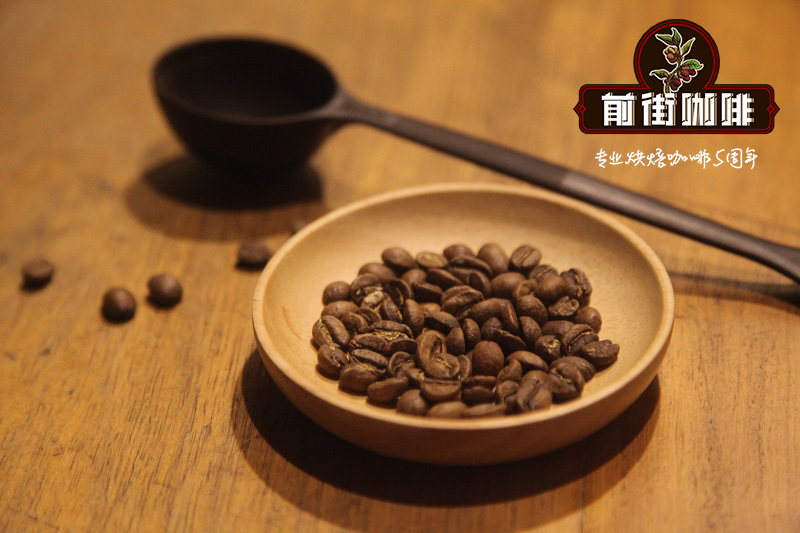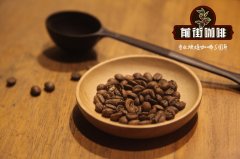Bolivian Coffee Bean Brand recommends the introduction of coffee beans in Bolivia's Archangel Manor.

Professional coffee knowledge exchange more coffee bean information please follow the coffee workshop (Wechat official account cafe_style)
Front Street-introduction to Bolivian Coffee
Coffee was really commercially produced in Bolivia in the 1950s (at first coffee trees were planted around homes as fences), but the coffee industry grew rapidly in a very short time. This is partly due to the impact of the Brazilian frost in 1975, when Brazil's coffee industry was hit hard, and Bolivia's coffee industry took advantage of the opportunity to develop rapidly.
In the past, most of the coffee in Bolivia was of mediocre quality, but in recent years, the production of boutique coffee has developed rapidly, and there have been a lot of pretty good beans. In recent years, the COE (Cup of excellence) system, which was first implemented in Brazil, has gradually become popular. Bolivia has also introduced this system, which, on the one hand, can stimulate the enthusiasm of coffee farmers, on the other hand, it is also to improve the quality of coffee. COE beans are better than ordinary coffee in both raw and roasted coffee.
The aroma of Bolivian coffee is rich and unique, both the aroma of ground beans and the aroma of coffee are obviously rich, similar to the mixture of flower and fruit aroma, impressive.
The acidity is medium and low, but the feeling is not monotonous, but calm and generous, soft and fresh. In the sour taste, you can even feel the sour taste of citrus fruits.
The overall taste of Bolivian coffee is rich and balanced, in addition to the beautiful sour taste, there is also a shallow chocolate flavor, smooth taste is more smooth, by contrast, the bitter taste is not obvious. The aftertaste of the coffee is very good, and the sweet taste in the mouth lingers after drinking it, and the wonderful experience of this coffee is unforgettable.
Bolivia Yonggas Karanabi
Archangel Manor
Flavor: Musk grape, Apple Cider Vinegar, apple spirits
Knowledge: Bolivia is a landlocked country, about 1/3 of the territory is the Andes, rugged terrain, high altitude.
In short: Qianjie is a coffee research hall, happy to share the knowledge about coffee with you, we share unreservedly just to make more friends fall in love with coffee, and there will be three low-discount coffee activities every month. The reason is that Qianjie wants to make more friends drink the best coffee at the lowest price, which has been Qianjie's tenet for 6 years!
END
Important Notice :
前街咖啡 FrontStreet Coffee has moved to new addredd:
FrontStreet Coffee Address: 315,Donghua East Road,GuangZhou
Tel:020 38364473
- Prev

Bolivian coffee beans taste chocolate sweet and soft acid
Professional coffee knowledge exchange More coffee bean information Please pay attention to coffee workshop (Weixin Official Accounts cafe_style) Front Street-Bolivia Coffee Introduction Bolivia, located in the southeast of Peru, is a country of mountains. La Paz is 3660 meters above sea level. Coffee cann't grow in this cold. But YUNGAS, northeast of La Paz, borders the Amazon basin. The altitude is slightly lower. about 15
- Next

Bolivian Rosedale Coffee Bolivian Rosedale Coffee Bean Features Dreamy Unicorn
Professional coffee knowledge exchange More coffee bean information Please pay attention to coffee workshop (Weixin Official Accounts cafe_style) Front Street-Bolivia Guixia Coffee Introduction This batch of coffee comes from Don Carlos Manor in Bolivia, seeds come from Emerald Manor in Panama, Guixia is a very unique bean seed, showing amazing characteristics of coffee, such as floral, red berries
Related
- Beginners will see the "Coffee pull flower" guide!
- What is the difference between ice blog purified milk and ordinary milk coffee?
- Why is the Philippines the largest producer of crops in Liberia?
- For coffee extraction, should the fine powder be retained?
- How does extracted espresso fill pressed powder? How much strength does it take to press the powder?
- How to make jasmine cold extract coffee? Is the jasmine + latte good?
- Will this little toy really make the coffee taste better? How does Lily Drip affect coffee extraction?
- Will the action of slapping the filter cup also affect coffee extraction?
- What's the difference between powder-to-water ratio and powder-to-liquid ratio?
- What is the Ethiopian local species? What does it have to do with Heirloom native species?

